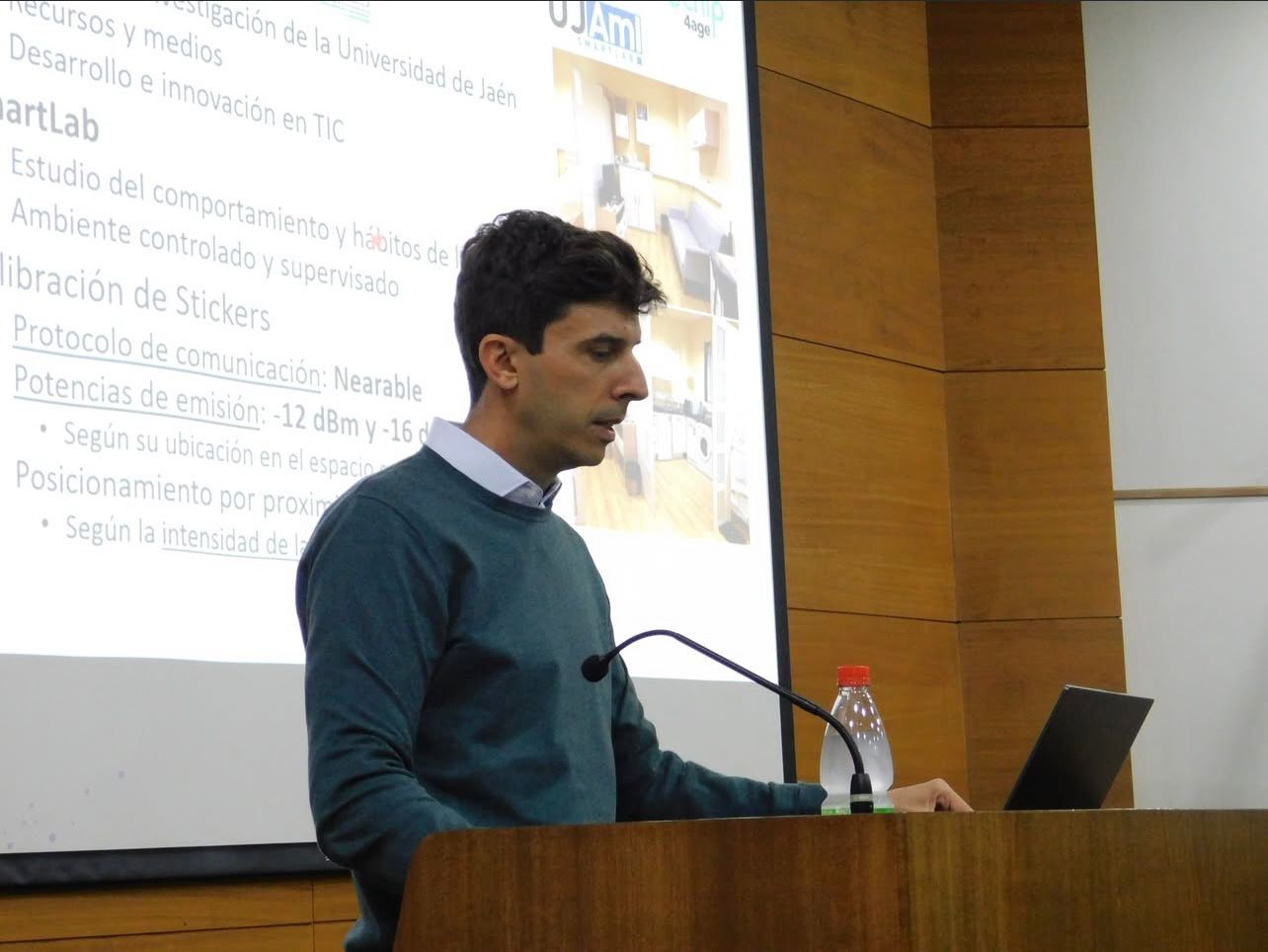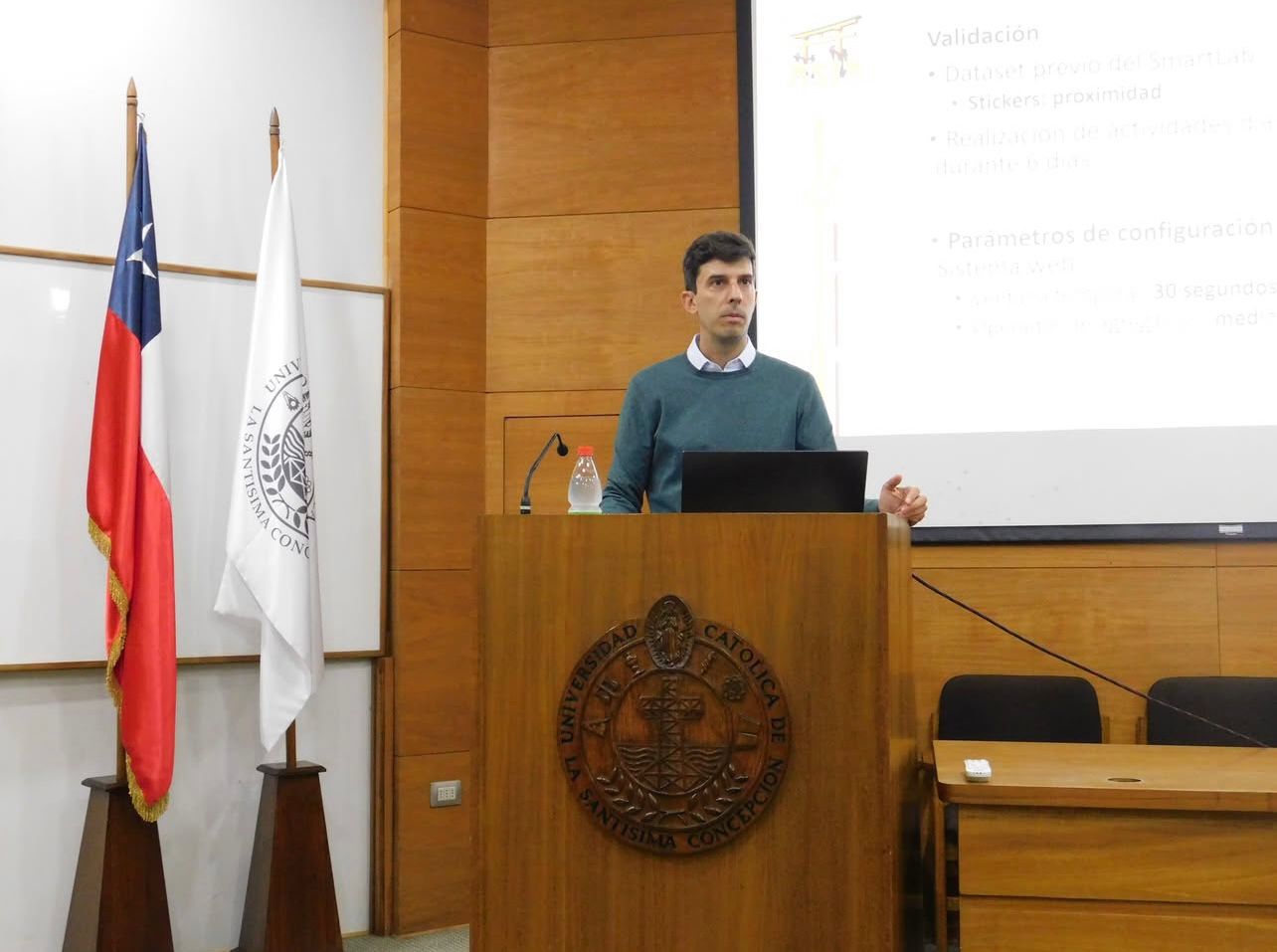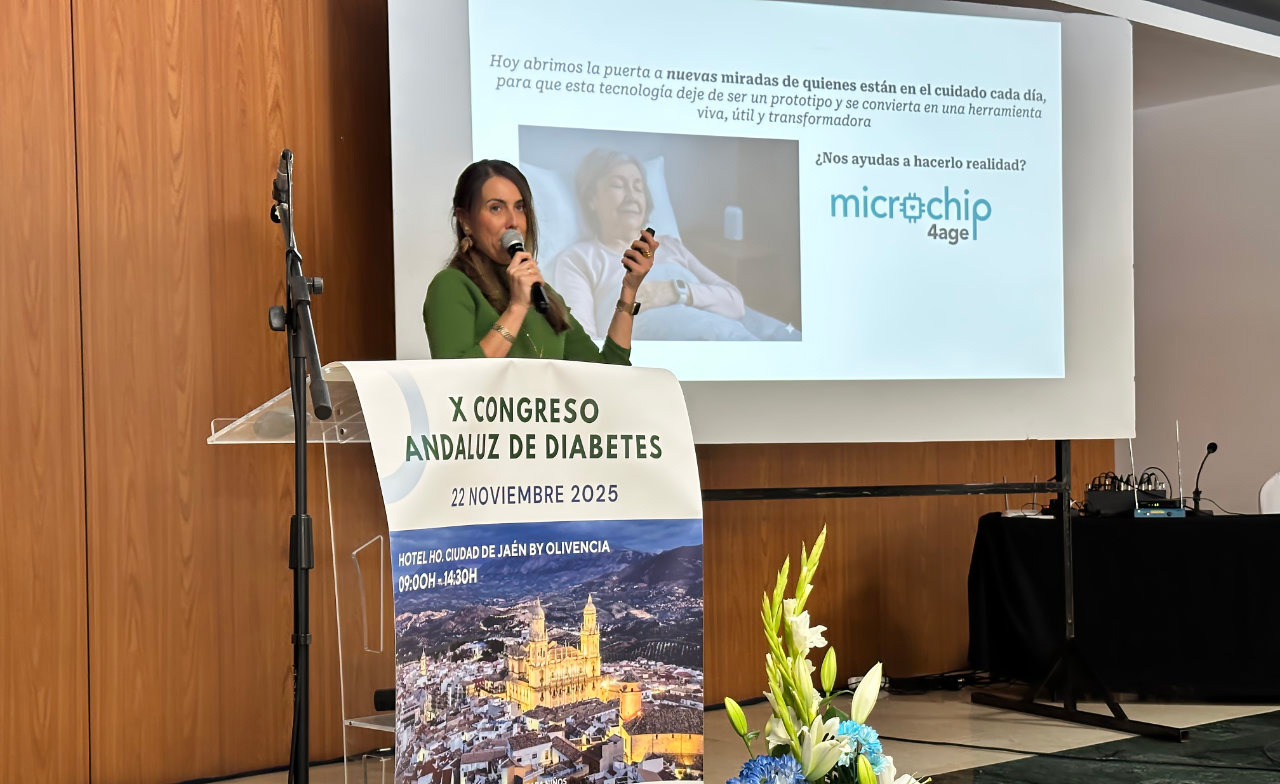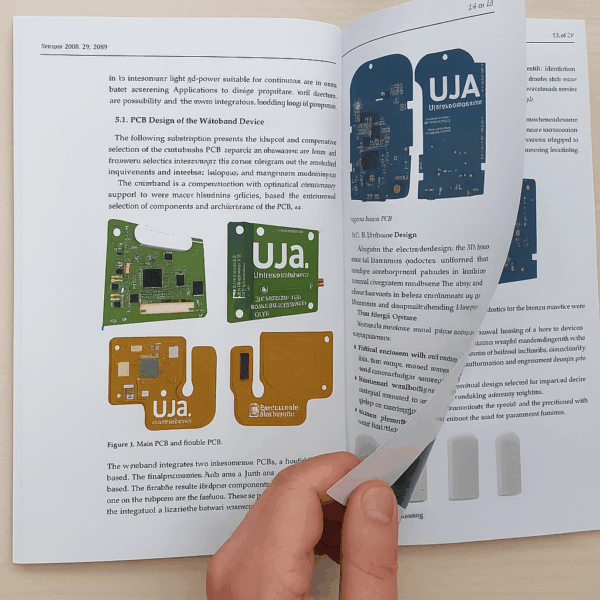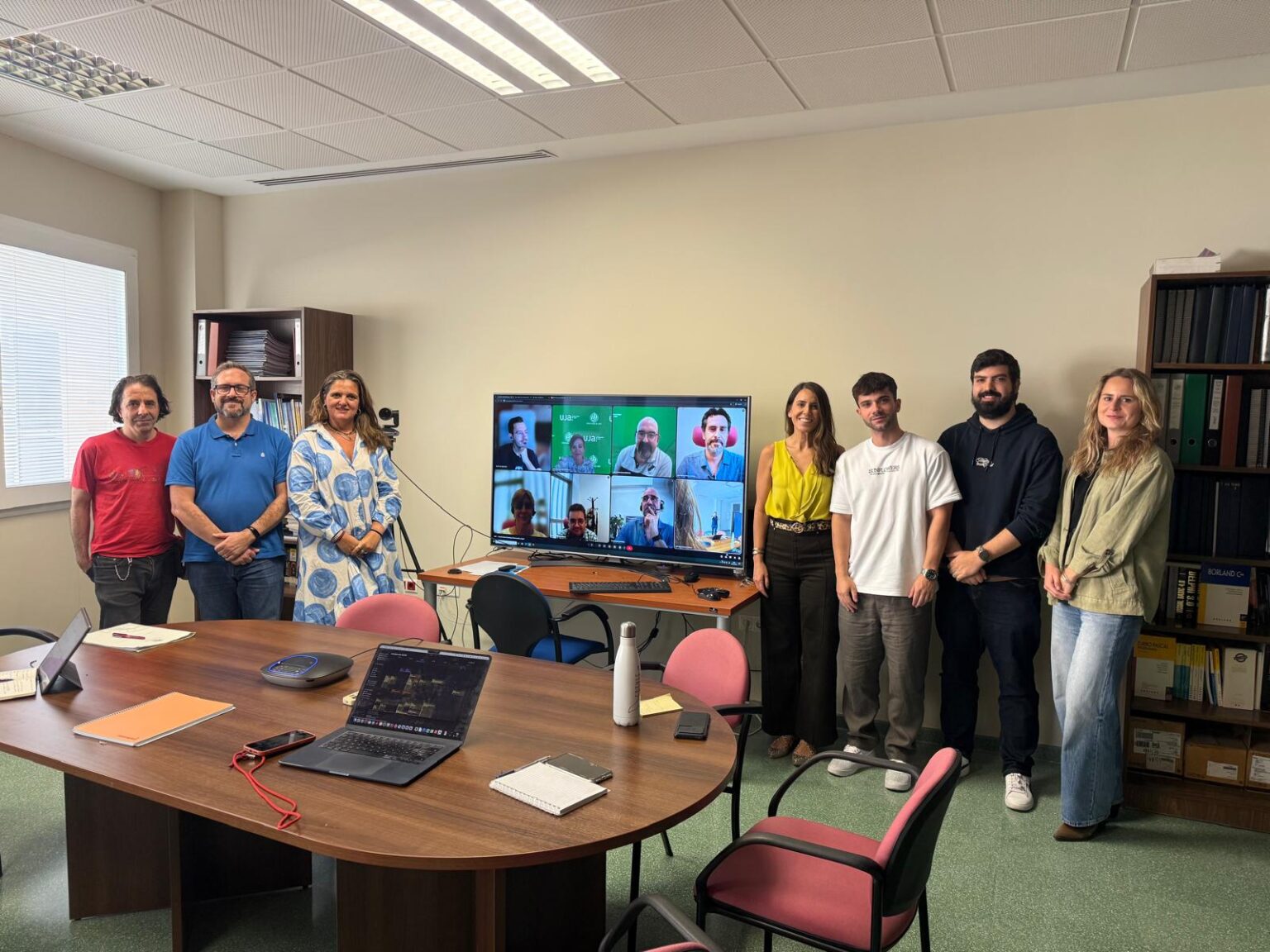Dr. Antonio P. Albín Rodríguez, member of the MicroChip4Age team, reflects on how technology can foster autonomy and safety for older adults.
Concepción, 09/04/2025 – The MicroChip4Age project continues its commitment to disseminating scientific knowledge and promoting dialogue on the pressing challenges of an aging population. On this occasion, Dr. Antonio P. Albín Rodríguez, member of the project’s research team, delivered a talk entitled “Indoor Localization: A Key Tool to Face the Challenges of Aging”.
The lecture took place on Wednesday, April 9th at 10:00 AM, at the San Agustín Auditorium of the Faculty of Engineering at the Universidad Católica de la Santísima Concepción (UCSC), as part of the international outreach activities of the project.
Technology for well-being in the context of aging
During his presentation, Dr. Albín Rodríguez addressed how population aging presents increasing challenges in terms of autonomy, safety, and overall well-being, both for individuals and for healthcare systems.
In this context, he explained how indoor localization systems, developed within MicroChip4Age, are becoming effective and non-invasive tools for providing personalized monitoring, early risk detection, and greater independence in the everyday environments of older adults.
Custom-built devices versus generic commercial solutions
One of the key points emphasized by Dr. Albín Rodríguez was the importance of developing proprietary electronic devices, in order to avoid making intelligent indoor localization systems dependent on or constrained by generic commercial platforms. He noted that this is one of the strategic goals of the MicroChip4Age project: to design technology that is truly adapted to users’ real needs, without compromising their autonomy or privacy due to reliance on third-party infrastructures.
Real-world applications and a commitment to social impact
The lecture also highlighted the project’s advancements in microelectronics and ambient intelligence, emphasizing how these systems allow for activity and location monitoring without cameras or microphones, thus preserving the privacy and dignity of users.
Events like this reinforce MicroChip4Age’s commitment to education, scientific outreach, and responsible knowledge transfer. They also strengthen the project’s presence in international academic settings where the future of human-centered care technologies is being shaped.
